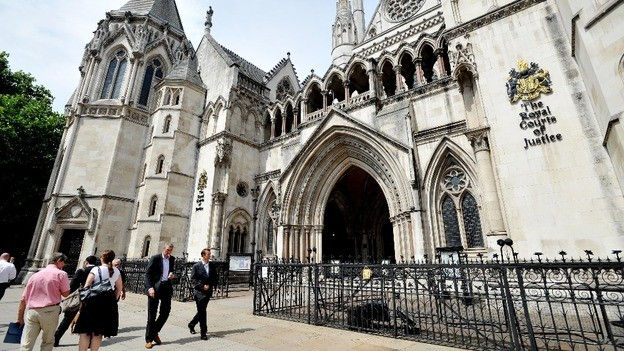Injunctive Relief and Contempt of Court - James Bulger
- Kumarlo Menns

- Jan 27, 2019
- 4 min read

1. Introduction
The growth in use of social media is no longer a new phenomenon. However, the legal issues which can arise from an innocuous tweet or post on Facebook continue to grow.
One of the ways in which a party can seek to prevent or curtail the circulation of information on social media is to apply to the court an injunction. A person who breaches the terms of an injunction can be found in contempt of court. A finding of contempt can lead to a term of imprisonment, asset seizure or a fine being imposed on the wrongdoer – the ‘contemnor’.
Once an injunction has been granted the question of service need to be addressed. The question of service is important because the terms of the injunction need to be brought to the attention of the wrongdoer and other relevant parties. Ordinarily an injunction will need to be personally served with an injunction. However, in certain circumstances the court will grant permission for the injunction to be served by alternative means, for example service by email or posting a message on Facebook.
A recent example involves the actress Tina Malone who, it is alleged retweeted images of Jon Venables on social media. Jon Venables was convicted of abduction, torture and murder of the toddler James Bulger almost 25 years ago. Because of the nature of the offence and the fact that Mr Venables was only 10 years old at the time of the crime, the court granted an injunction preventing the publication of any images or information claiming to identify Mr Venables.
In this article we examine the law of contempt of court in relation to breach of an injunction.
2. Analysis
The relevant rules can be found in CPR Part 81, in particular CPR Part 81.4 provides that where a person fails to comply with a judgment or order, the judgment or order may be enforced by an order for committal.
Committal proceedings are commenced by filing an application at court in the proceedings in which the injunction was granted. The application must comply with the requirements of CPR 23 and 81 and the associated practice directions. The requirements of Part 81 will be interpreted strictly by, although the court does retain some discretion.
Pursuant to CPR 81.10, the application notice must set out:
• the grounds on which the application is based, and
• identify each allegation and date of each alleged incident, if known.
The application must be supported by an affidavit setting out the relevant facts and exhibiting supporting evidence.
Where permission was granted by the court to serve the injunction by alternative means, insofar as the specific requirements of service by alternative means have been complied with, any person who subsequently breaches the terms of an injunction will be fixed with constructive knowledge of the injunction. The fact that they do not have actual knowledge is not relevant to the question of contempt.
The application documentation must contain a copy the penal notice as set out in the practice direction to CPR Part 81. The penal notice provides important information to the wrongdoer about the nature of contempt of court proceedings and the action required of the wrongdoer.
3. Defences
An inadvertent breach of an injunction is not sufficient for a finding of contempt of court. According to Mr Justice Jay in Plant Health Care v Tech Bio:
‘there has to be a degree of culpability and knowledge of the order and of the basic facts which constitute the breach’ .
A person cannot evade the effects of CPR 81.4 and a committal order by leaving the jurisdiction as the provision has extra-territorial effect.
It is important to underline the importance of the penal notice. The absence of a penal notice in the injunction or in the documentation in support of an application for contempt will often be fatal to an application for contempt.
As stated above, a wrongdoer is fixed with constructive knowledge of the injunction where the requirements of service by alternative means have been complied with. As such a person who did not have actual knowledge that an injunction existed can nevertheless be found in contempt of court. That said, the question of actual knowledge of the injunction may be deployed as an argument in mitigation.
4. Conclusion
The imposition of an injunction, even on an interim basis, is a draconian measure and is not a step the courts will take lightly. Equally, a breach of the terms of an injunction can have very serious consequences.
Specialist legal advice should be sought at the earliest opportunity if believe you have breached the terms of an injunction, and steps to should be taken to mitigate any damage or further breaches of the order.
Notes for editors
By Kumarlo Menns, Solicitor
Contact: E: kumarlo.menns@montpelier-solicitors.com
T: +44 (0)207 199 3611
About Montpelier Solicitors
Montpelier Solicitors Ltd is a law firm whose directors have a track record of successfully supporting their clients. We specialise in dispute resolution, insolvency and business immigration. Our commitment, expertise and know-how means our clients rely on us when it matters most. We recognise that success for our clients translates into success for our firm




Comments